Gladiators GM Brenda Suh On Roster Building, Moving Forward With Dpei and More
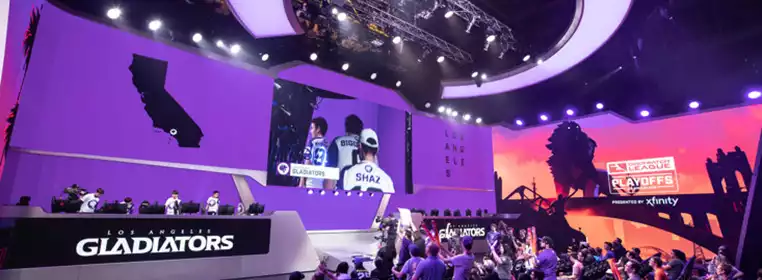
The newly appointed General Manager for the Los Angeles Gladiators Brenda Suh has been around the block in the Overwatch League, having been part of the Seoul Dynasty, Guangzhou Charge, and the Gladiators in different capacities.
In this interview with GGRecon, she talks about her journey, the decision making process going into last and next season, and why they decided to move forward with Dpei. She also shared which problems they faced and how they are looking to correct them, and how the Gladiators will move forward in their recruitment strategy.
The interview has been edited for clarity and brevity. Moreover, significant portions of the interview were cut for editorial reasons but are available in the video interview below. The covered subjects entail the impact of leaks on roster building.
You had an interesting way here, having been part of the Dynasty, the Charge, and now the Gladiators. Job titles only ever tell so much, especially in esports. What was your actual journey?
Starting from the beginning, my work experience in general has always been in management but across a wide variety of industries. I have everything from operations in a warehouse, to managing salons and stylists, and the customer experience. Coming into esports with Seoul Dynasty, I took a position because I played video games growing up. That’s a huge part of where my social life growing up was at. Esports and Overwatch, in particular, was really appealing to me. I went to Burbank arena, I grew up in Southern California, so it was in the backyard. After seeing the events in person, I was like: “This is really cool! I see a lot of different challenges from the outside looking in, and I have no idea how they work on the backend.”
I was lucky enough to get a position with Seoul Dynasty, a short term internship just to see if that is something I’d be interested in. It was a really interesting experience because I probably wasn’t qualified for the job at all. Full Korean team, I wasn’t really involved with the competitive side, spent my day-to-day with the team, but I was looking at everything on the backend and how things are functioning from housing and staffing. At the time, KSV were not even Gen.G; it was a really lean staff, there was no bigger parent company, the office doesn’t exist in LA. It was like: “How are we making everything work?” I thought that was really cool and exciting. I loved the challenges, and I think I saw a lot of the competitive team from the outside looking in.
Ultimately, I felt this wasn’t the best fit for me. I’ve always been someone that looks at my line of work. I want things to run as smoothly and efficiently as possible. With the Dynasty, I think I wasn’t the best person for the job due to language or any other thing. This was season one, so I didn’t know if I wanted to move to Korea in two years.
So I walked away from it, and I went back to a more corporate job to work for Esri, which is like location analytics software development. Worked there for a little bit and had a phone call when the expansion teams came into the League from my previous employer saying: “We weren’t the right fit but this team might be for you. I know you always looked at the challenges that we were faced and you always had creative solutions and this sounds like this is in alignment with the things you wanted to do” and that’s how I was introduced to the Guangzhou Charge and Eddy [Meng, COO of the Charge] and Ethan [Liu] who was the General Manager.
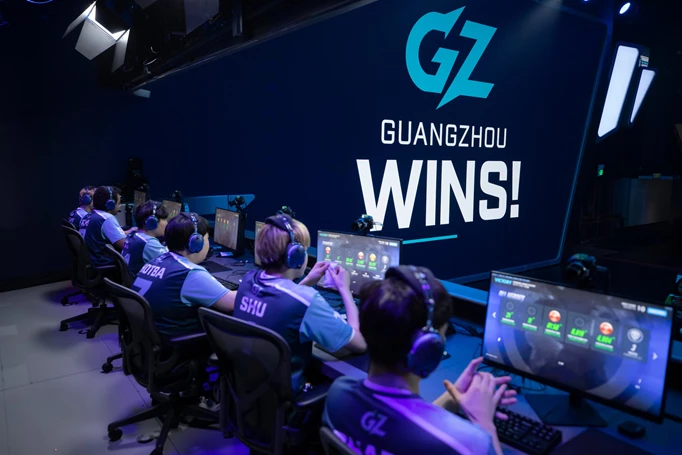
 Click to enlarge
Click to enlargeI thought everything we were building was really exciting. I still saw some of the same things: languages are going to be an issue, but these are also things that I faced in the past and the alignment of it being a Western-ran organisation but just has international players with the languages and the cultures combining, but everything was Western-facing on our end. So, I thought: “Okay, this is a position where my wings aren’t clipped. It’s in alignment with the things I want to do.” They always were a developmental organisation; they always looked at it like: “Let’s build a young roster and let’s see where we can build it up to go” That was really exciting to me.
One thing I’ve always looked at with esports is, how do you make that sustainable, and how do you intersect these things that you think are very small like job security is scary in any job, but in the esports industry this drives so much of your decision making whether this is as a coach or as a player. Would you prioritise your long or short term goals, or do you just wing it as you go? So I took my position there. At that job, I was purely looking at the competitive team. I was looking at what is the support and the structure that goes around it? As an organisation, we know these are our KPIs [Key Performance Indicators] and this is what we want to achieve over the next year, and this is what we hope to grow to in three years. How do I best clear all the obstacles from my players and my coaches to allow them to focus on winning, and then just put support around them that helps also drive these other decisions?
I think having a head coach and a General Manager; there’s a reason why this should be split into two positions because the General Manager should be looking at the organisational goals and efforts, the Head Coach should be focused on winning.
I spent my year doing that. Again, at the end of the season, I thought: “Do I want to make the move to China, and in China, am I still as efficient at my job if I can’t speak the language? In LA, when we needed vendors, or we need anything done, I have full access to all of that, but in China, I’m starting up from scratch and don’t have the language [skills]. I thought “that’s scary and I don’t know if that’s necessarily the best choice for the team as well”. So I was lucky enough to be introduced to the Kroenkes. I started as director of operations which I still am for the Guerillas in Call of Duty, and then the Gladiators in Overwatch League. At the time, it was a step back from competitive. I think with my skill set, what I really love focusing on is the structure around the team. How do we clear out obstacles and make it that anyone within our organisation doesn’t have to think about how these things get done, so they can best focus on their role? With that being said, making the correct decisions and looking at the long term of the organisation and where we want to grow it to. If we planned to be a Western team that brings on international players, how do we utilise a translator, how do we do language lessons vs the forefront goal of like how do we make review run faster? Looking at challenges, same thing with jobs security, same thing with dynamics of the team.
Especially depending on how season results go, every year, every team faces the decision of “do we want to hit the reset button?” I’ve always leaned on the side that you don’t. Any time you have to consistently hit reset buttons - for your players, your staff or anything in general - there’s a lot of constant turnover. Especially in Overwatch League, there’s no road map for how to do it perfectly. We are still sorting that through. I spent the last year focused on both of those teams on some of those issues, and now I’m stepping back towards the competitive domain of the Gladiators. A lot of the lessons from last season were like: “How do I allow my coaches to focus fully on doing their job and to do that with a full amount of resources and support the organisation?” Part of that was splitting the title and looking at it from that perspective.
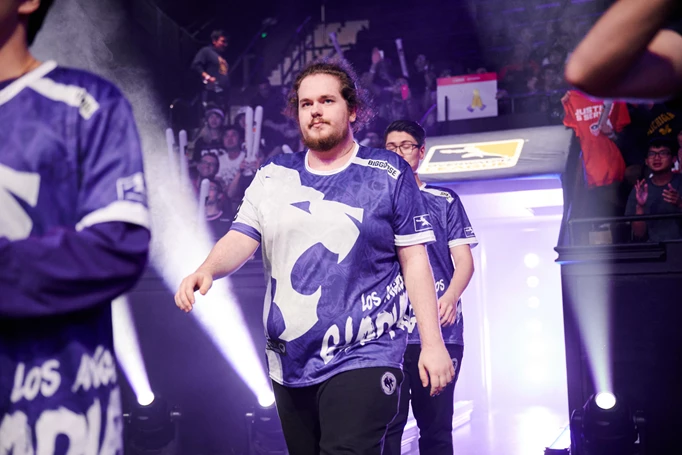
 Click to enlarge
Click to enlargeWhat was put on your plate this season in comparison to last season with your appointment to General Manager?
So from 2019, I was always a backseat driver in the decision-making for the team. Hierarchy and chain of command structures are really important to me. We also felt that it led to some interesting challenges down the road. I think having a head coach and a General Manager; there’s a reason why this should be split into two positions because the General Manager should be looking at the organisational goals and efforts, the Head Coach should be focused on winning. I think last year it was intentional that we did this. I think David [“Dpei” Pei] has always had a really strong vision towards the future and his style of leadership. We believed in that, and we still do but the differences… Maybe he had to balance between two roles too much last year, when this year, he gets to solely focus on “how do we win and how do we competitively drive these goals?” For me now in 2021, I’m going to be focused on making sure that I take those balancing acts on. What’s supports the team but what also looks long term towards the organisational decisions. I look at the efficiency of the team, and I think I talk about this in every interview that I do, especially in esports the day-to-day, is so fast that it’s very easy to get caught up in these day to day decisions. As a coach too, you’re having to balance so many different things, whether it’s player personalities and relationships, your own coaching staff and the efficiency of it that during the season it’s such a whirlwind, especially depending on the results and the stress levels in the team this year with COVID intersecting with it. Someone needs to step back outside the room and look at: are we actually working on efficiency or are we just like “Oh problems levelled up! We are taking it problem by problem.” instead of looking at it like “what does it look like in two months, three months. What does it look like next year? Two years? Three years?” and driving those greater decisions.
We were built to be a team on the road and to have really strong leadership.
You talked about inefficiencies in a team. Are there any you can share?
One would be that things bubble up going back to “What’s your competitive performance?” I think any time you have a losing game it’s really easy to say: “From the beginning of the year Gladiator was in this position.” We knew we came in the transition of management and the greater organisational side of it, taking on Call of Duty. The staffing looked very different. We looked at the roster at the beginning of the year. We said: “We know we are late to the game in roster movements” which puts you in a lot of really quick-deadlined forced decision making. We looked at it like, it’s realistic to say that if this is a middle of the pack team next year we’re happy. We just don’t want this to explode because of all these we came to the game late, we have a lean staff, and all these things. But then you sign players like [Indy "SPACE" Halpern] and [Min-seok "OGE" Son] and you’re like: Wait, this is not a middle of the pack team! We can for sure do better than that!”
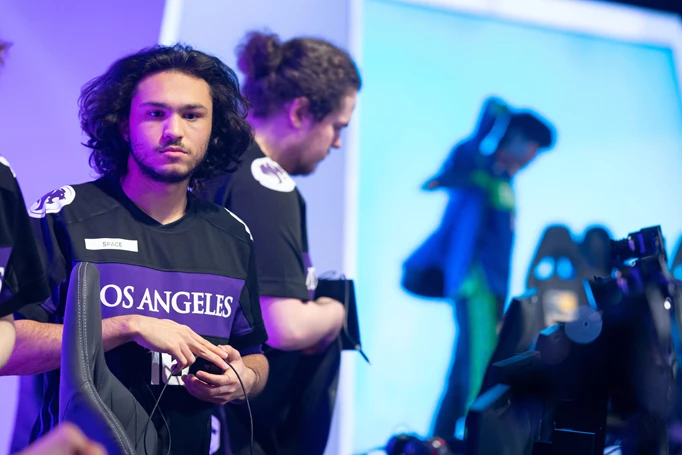
 Click to enlarge
Click to enlargeWe knew that as an organisation, our front office was really lean. Last year, we operated with three people overseeing everything internally, and this is across two teams [Guerillias and Gladiators]. But then as you start winning games last year, we’re like “Oh, we are a really strong team. This is like really achievable that we could be in the top four.” and then COVID hits. And then all these things start changing. We were built to be a team on the road and to have really strong leadership. We had a team house built for this very specific culture we wanted. COVID kind of stripped all of that away. All those decisions we made towards what’s best for our players' mental health to balance their time on the road and how worn down they might be from that, turns into a different type of balancing mental health in the same house.
The team house decision was great for that from a logistical standpoint but maybe spending 100% of your time with your teammates for different personalities that can be challenging. I know I’m someone that’s highly introverted. I can do extroverted stuff, but at the end of the day, I need one day to not see or talk to anybody a week and in a team house that makes it much harder. Then you can’t go out and have lunch with a friend to get out from the day, or go travel, for an international player, you’re in LA but you can’t actually go out and explore and be a part of it. Small things like that bubble up. Maybe from a coaching or a player standpoint, you aren’t paying attention to any of those external factors. You might think about it, but you’re not thinking about the impact. You’re just thinking about, how did we win and how did we lose? Is it because we didn’t spend enough time as players, and this seems like an immediate answer, but then you look at it, and you’re like “We did spend a lot of time together as players. What type of time were we spending together like the quality of that? Or what was discussed in those moments?”
We still believe in the leadership, I don’t want to hire in someone that takes voice or authority away from David in the areas that he excels in.
Another one would be language as always, I think that’s one of those ones that bubbles. Efficiency from a coach and a player standpoint might mean that if you have split staff; let’s say you have Korean support staff, you might split time efficiency in saying those coaches and the staff should work with your Korean players because it’s the most effective way to do it. In review, let’s translate every single thing; we don’t want any misunderstandings. All these decisions make sense; they are right decisions. But when you step back and think that if the goal is to always keep this divide between this language structure, that’s kind of what ends up happening at the end of the day versus what’s the right amount of time to say specific things need to be translated all the way through for players for clarity. In general, when we talk about the game itself is a different thing. It’s not English, it’s not Korean. It’s the game’s language. Where do we skip translations so that it helps us practice languages for our Korean players? The more you’re listening, and you’re part of the conversation in that aspect, the quicker it is to pick up. If we are always translating every single thing that you never have to go out of your comfort zone. There’s always a weird balance; you don’t want them to not get those resources. You want them to feel comfortable, confident, and to have the support but then also from an efficiency point of view, it’s times when we are going to slow down, and we’re going to have to replay the conversation three different times because the first time we wanted to do it fully in English. The second time we are breaking it down in translations, and the third time it’s like...wait… we’re still realising that there are problems. I think that’s okay, because ultimately you want the challenge to be part of the process as well.
Interestingly, last season Dpei stated that he wanted to move towards an anglophone roster. You didn’t have a Korean coach during that time. Now you have picked up Seung-min "Tydolla" Jung. Is the direction changing for you guys at all?
The direction is still the same. It’s just what did it mean to hit that objective? With Tydolla, I’ve worked with him in the past on Guangzhou Charge. David [Dpei] why as a coach, we specifically picked him up. For me what I looked at was that he fit the culture for the team we want to build as well. Any time you look at bringing on a bilingual staff, I think the first immediate checkbox you can look at is to what extent they are bilingual. Everyone I worked with at the Charge, I know the language was a huge part of our priority so they all have the ability to step up. I know this from myself. I had Spanish in high school, any time you study a new language you have to want to learn it in order to be successful in it. I think you can go through the motions, but [without interest] there’s no sense in taking on a second language.
We’re looking at that, but what we are looking at more at: “How do we transition that over time more clearly?” I think last year not having a Korean coach was not… Our team manager Andrew [Kim], is amazing. He helped fulfil a lot of that, but there are times when you want that different opinion and perspective, and it needed to come from a coach. I think that team dynamic is really important as well.
You said that teams change a lot from year one to year two. Last year, you had a significant change in upper management. It’s kind of like you are in year two now. How are you guys going to change?
In year one, we purposely kept it lean. If you look across the organisation as a whole, I think this is really evident. David was both the head coach and the general manager and a lot of that decision making was because we believed in his vision, and we felt he was the best fit for it. So if you believe in that, where do you split hairs between: “Should he do that as a general manager or should he do that as a head coach?” We didn’t forcibly insert a secondary voice of authority that could pull away from that, if that makes sense. We wanted to make sure there is alignment.
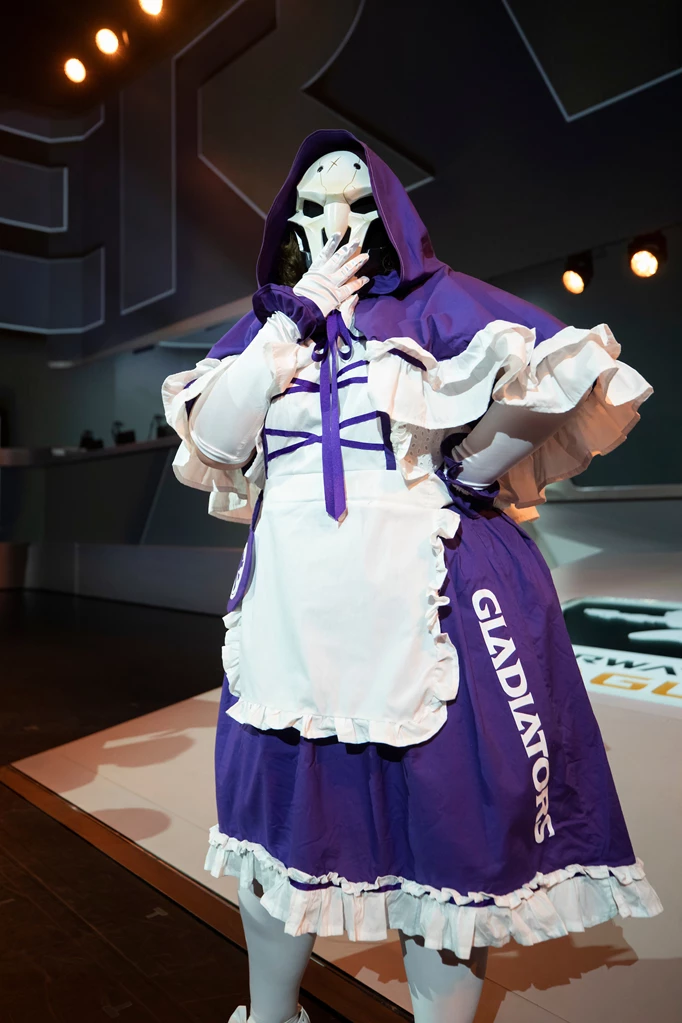
 Click to enlarge
Click to enlargeFrom the organisational, staff, front-office side, we contracted the work that needed to be done. You see that with our marketing team but at the same time, our front office is three people throughout the majority of the season. It’s not because our org doesn’t have their resources or because we don’t have the care to. We looked at it and thought: Does it make sense to open up the door and hire in like 20 people right now when we don’t know what we need? We know what other orgs are doing for how they structure the competitive staff, for their office support, their business side, partnerships, and marketing. We see what other teams do but is that what we want to do? Maybe we hire in a really lean marketing staff, and we really ramp up the business side, and then we’d realise that our money would’ve been better used in reverse. Especially with COVID too we are grateful for that decision because it would’ve been terrible to have done all of this and realise that our priorities have shifted and you never want to let good people go.
That’s something that very much changed from last year coming into this year. We know what we want, we know where there are gaps. It’s not like guesswork when we are hiring people but we are very intentionally hiring specific people for specific roles. Myself taking over the general manager title has a very specific reason, it’s because what I did in the last year is support the teams and remove obstacles for our coaches. I want a general manager who does that same thing for the team and every time we discussed what the next steps forward were, the conclusion was ultimately the same. We still believe in the leadership, I don’t want to hire in someone that takes voice or authority away from David in the areas that he excels in. Instead, I want to look at it and say: “How do I clear his bandwidth so that he can focus on those things? How can he focus on being a really strong head coach and leader? How can he focus on roster decisions while I can do the things that best support and assist that?”
Have you guys located specific issues other than being late to this last season?
I’m a highly critical person in general, so I can give you lists for days, are they small or big things might be a different story. Some things that are on top of my mind are: We went with what were the best decisions for the time, and what we felt like the right decision. A team house was a really great example of this. We looked at the roster and said: These guys are going to be on the road. This is a brand new team. We only had [Jonas "Shaz" Suovaara] and [Benjamin "BigG00se" Isohanni] from the existing Gladiators roster, David, and [James "Faustus" Frye] from the coaching side. Those were the only pieces that transitioned with us. This is a new team, how do we bring them together quickly? How do we take a timeline that should in a reasonable situation take like a whole year… how can we do that in a month so these guys can hit the road and be there?
I can’t speak for anybody else, I can only speak for our team. I don’t have an interest in signing somebody for 30 days for just our team’s advantage. I believe there are situations where you want to do this. Maybe the player is unsure if this is a good fit for them and there are times when I think where this makes sense and is the right decision.
Team house was really important to that. Again, going through COVID that made it ultimately still the best decision. Being able to transform a team house into a secondary office where they can safely work with health as a priority was really important, but we didn't have a backup plan. What if that had been terrible? What if we had player conflicts? What if our guys were highly extroverted and didn’t want to spend all their time within the same house with one another. For our situation, it turned out well, but now I look at it and think: “Was that future proof?” Probably not, so for next year we are changing how we look at that. We are changing the office; we want to make sure to learn that to have that space for the guys to come together is really important and not just for just Overwatch League, for Call of Duty, for our staff. We’ve always been an organisation that would rather do things in person. Safety is still a priority and a number one concern but with that being said. We want to have more of an option on where these guys can congregate at. It doesn’t have to exactly be a house that you also happen to do this at. We’re looking forward to building out our office for both of our teams to be there [as well as] our staff.
Team dynamics in general, you don’t think about how they intersect or how you can future-proof these decisions. For this year, COVID impacted another thing. For our international players, it’s not just that you were “stuck” in the United States for a full year, there were also things that were outside of our control like the League schedule. They had to be as fluid and keep up with our changes, but that also meant you went from two seasons of having a very specific break mid-season that you knew for a length of time. I think every time we are in a new environment you always mentally go: “I just have to make it to this day. Two more months, one more month and then I get to go home!” Imagine spending a whole season with that thought. “I don’t know when that date is, I just want to go home! Is it going to be after playoffs?” That sucks for these players, especially if they are younger and they haven’t been away from home. So we are thinking towards next year, how are we more proactive in our decision making so we aren’t holding our breath for these external factors to come together. That could be to have very expressed breaks between ourselves, or we are more conscious towards it by making sure that we are carving out time quicker when we have it, rather than doing things in LA that bridge that divide. Homesickness feels not as serious as it probably feels like for these players.
How are we doing things as an organisation to take that into more of our scope, rather than being forced on immigration? “Well, let’s wait and see how it turns out. Let’s see how the next month goes. What have other people done? How are the ones pushing and really getting that done upfront proactively?
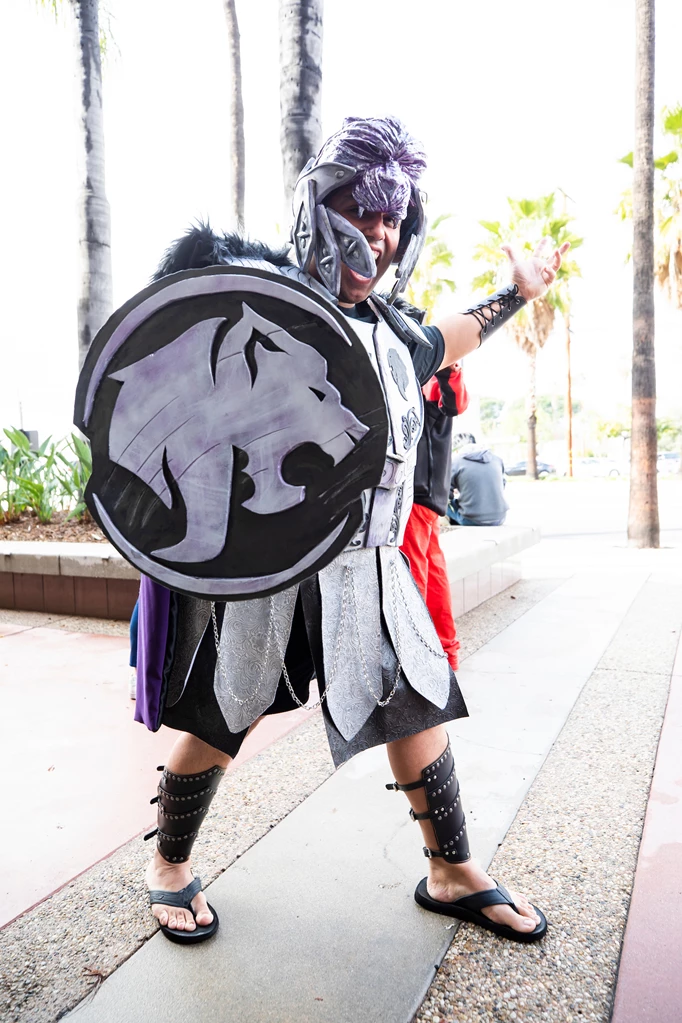
 Click to enlarge
Click to enlargeYou talked about the importance of career security. There are new contract rules through which you theoretically could be signing players for just 30 days. How have you received that change and does that work against what you are envisioning? Would you not require that clause in your contracts?
I think that’s a tough question. I think that’s with anything when you look at a rule and think: “There’s a lot of room to abuse this.” I’m specifically speaking towards that rule but general. Anytime you read something that is a rule, you can always look at it and say “There’s a lot of room to abuse this and there’s a lot of people who won’t take advantage of what this rule means for them.” I think my honest opinion on the perspective towards that is, it’s going to change from organisation to organisation. I can’t speak for anybody else, I can only speak for our team. I don’t have an interest in signing somebody for 30 days for just our team’s advantage. I believe there are situations where you want to do this. Maybe the player is unsure if this is a good fit for them and there are times when I think where this makes sense and is the right decision.
In general, I lean away from that. I always look more longer-term towards development of that, and the only time I would make that decision is probably if us and them were testing the waters. Our organisation had a really strong reputation. We’re not here to hold our players hostage for the duration. I think we always said that this could be disruptive to our team in other ways. There’s always a middle ground on these decisions and how we work through them in process. Anytime you make the knee-jerk reaction, that’s not the team that I want to be. I want to be the team at looks at it holistically and says: “We could do this with this one player but how does it impact future players on the roster? How does it impact recruit talent and retaining them over time?” I can speak very confidently for us, we’ll always balance those decisions.
The rest of the interview is available in the video linked above.
Images via Blizzard Entertainment
